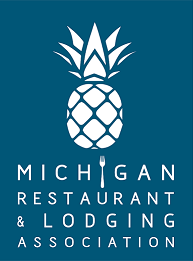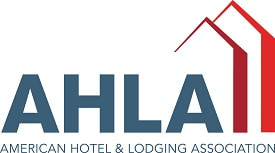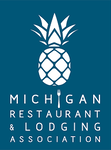Press Release
FOR IMMEDIATE RELEASE
October 30, 2023
Media Contacts:
MRLA Offers Helpful Tips to Promote Responsible Alcohol Service This Holiday Season
ServSafe Alcohol Training available for restaurants and hotels
ServSafe Alcohol Training available for restaurants and hotels
LANSING, Mich. - With a strong commitment to responsible alcohol service, the Michigan Restaurant & Lodging Association (MRLA) is offering tips to help industry professionals safely serve during the holiday season. These tips include guidance on how to recognize signs of overconsumption and ensure a safe environment for all customers.
The ServSafe Alcohol Training program, which is developed by the National Restaurant Association, offers a skills-based approach with strategies on how to intervene to prevent alcohol-related tragedies. It covers essential topics such as checking IDs, recognizing signs of intoxication, and handling difficult situations with professionalism. It provides an in-depth understanding of the importance of responsible alcohol service for the well-being of customers and the protection of businesses.
“As we enter the festive season, the importance of responsible alcohol consumption cannot be overstated,” said MRLA Executive Vice President of Education and Executive Director of the Michigan Hospitality Foundation Amanda Smith. “Our ServSafe Alcohol Certification program combined with our helpful tips to serve safely during the holidays, offers a comprehensive solution to ensure a safe and enjoyable holiday season for everyone.”
The MRLA understands that the holiday season brings unique challenges to alcohol service and has made the following tips available to help industry professionals:
1. Request identification from anyone who appears 35 years of age or younger. Guests who cannot present a valid form of ID should not be given any alcohol.
2. Control access to the alcohol you provide:
3. Offer soft drinks, fruit juices, bottled water and coffee so that your guests have an alternative to alcohol.
4. Allow guests to have only one drink at a time. Discourage competitive or rapid drinking.
5. Offer appetizers, snacks and other food to slow down the absorption of alcohol if you notice a guest showing signs of intoxication.
6. Look for behavioral cues to determine if a guest is approaching intoxication or is already intoxicated:
7. Make sure anyone who is visibly intoxicated does not receive any more alcohol and is not left alone. Even if the guest is not driving, an impaired guest can be injured or injure others in many ways, not just in a car.
8. When necessary, provide alternate transportation for impaired guests. Either call a shared ride service or enlist the help of sober friends to take the impaired guest home.
For more information about ServSafe Alcohol Training and the MRLA, including upcoming trainings and resources, visit www.mrla.org/training.
The ServSafe Alcohol Training program, which is developed by the National Restaurant Association, offers a skills-based approach with strategies on how to intervene to prevent alcohol-related tragedies. It covers essential topics such as checking IDs, recognizing signs of intoxication, and handling difficult situations with professionalism. It provides an in-depth understanding of the importance of responsible alcohol service for the well-being of customers and the protection of businesses.
“As we enter the festive season, the importance of responsible alcohol consumption cannot be overstated,” said MRLA Executive Vice President of Education and Executive Director of the Michigan Hospitality Foundation Amanda Smith. “Our ServSafe Alcohol Certification program combined with our helpful tips to serve safely during the holidays, offers a comprehensive solution to ensure a safe and enjoyable holiday season for everyone.”
The MRLA understands that the holiday season brings unique challenges to alcohol service and has made the following tips available to help industry professionals:
1. Request identification from anyone who appears 35 years of age or younger. Guests who cannot present a valid form of ID should not be given any alcohol.
2. Control access to the alcohol you provide:
- Use standard-size glasses and measure the alcohol in mixed drinks.
- Count drinks.
- When serving a guest previously served by a co-worker, check with your colleague to find out how many drinks the guest has already been served.
3. Offer soft drinks, fruit juices, bottled water and coffee so that your guests have an alternative to alcohol.
4. Allow guests to have only one drink at a time. Discourage competitive or rapid drinking.
5. Offer appetizers, snacks and other food to slow down the absorption of alcohol if you notice a guest showing signs of intoxication.
6. Look for behavioral cues to determine if a guest is approaching intoxication or is already intoxicated:
- Relaxed Inhibitions: Alcohol causes people to shift behavior in ways that they would not typically act. This includes someone being overly friendly, depressed and quiet, loud, or making rude comments.
- Impaired Judgement: Signs of impaired judgement include complaining about drink strength after having the same drink, faster drinking, escalating drink strength, and making irrational or aggressive statements.
- Slowed Reaction Time: Reaction time becomes slower with every drink. If a guest begins moving or talking slowly, having trouble concentrating, losing train of thought, or experiences drowsiness, it may be time to stop service.
- Impaired Motor Coordination: This is a classic sign of intoxication. If the guest begins staggering, stumbling, swaying, spilling, or slurring, it’s time to stop service and make sure the guest has a safe way to get home.
7. Make sure anyone who is visibly intoxicated does not receive any more alcohol and is not left alone. Even if the guest is not driving, an impaired guest can be injured or injure others in many ways, not just in a car.
8. When necessary, provide alternate transportation for impaired guests. Either call a shared ride service or enlist the help of sober friends to take the impaired guest home.
For more information about ServSafe Alcohol Training and the MRLA, including upcoming trainings and resources, visit www.mrla.org/training.
About the Michigan Restaurant & Lodging Association
Michigan Restaurant & Lodging Association (MRLA) is the recognized leader of Michigan's hospitality industry, providing essential services to the foodservice and lodging community. Founded in 1921 as the Michigan Restaurant Association and now known as the MRLA, the Association represents over 5,500 Michigan foodservice and lodging establishments. The industry plays an integral role in Michigan's economy, employing more than 450,000 people and creating nearly $44.6 billion in annual sales. For more information, visit www.mrla.org and www.detroitrla.org.
Michigan Restaurant & Lodging Association (MRLA) is the recognized leader of Michigan's hospitality industry, providing essential services to the foodservice and lodging community. Founded in 1921 as the Michigan Restaurant Association and now known as the MRLA, the Association represents over 5,500 Michigan foodservice and lodging establishments. The industry plays an integral role in Michigan's economy, employing more than 450,000 people and creating nearly $44.6 billion in annual sales. For more information, visit www.mrla.org and www.detroitrla.org.
###





